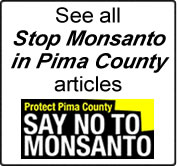Healthy Holidays the Paleo Way
by Melissa Diane Smith
What you need to know to keep following the Paleo diet from Thanksgiving through New Year’s.
Q: My husband and I have experienced amazing health transformations since we began eating a Paleolithic diet about six months ago. We have lost weight, have more energy and improved digestion, and have normalized our previously high blood sugar levels. We want to keep that good health going during the holidays, but we know there will be many temptations. Are there any tips you can give for going through the holidays the Paleo way?
– Amy T., Chicago, IL
The Paleo diet, often referred to as the “caveman diet,” advocates eating unprocessed foods that our ancestors would have eaten during the Paleolithic era – i.e., meat, vegetables, fruits, and nuts. Olive oil, coconut oil, and avocado oil – and on some versions of the diet, organic grass-fed butter – may also be included.
As you and your husband found out, eating Paleo food provides the body the foods it needs to thrive, stay healthy, and normalize weight. The key to continuing both the diet and the health benefits you’re experiencing is to plan ahead. Doing so is extra important during the holiday season when there are many more activities, food temptations, and social pressures than normal. It takes a little effort, but if you keep the following tips in mind, you can have healthy holidays the Paleo way:
(more…)





 I recently learned that my books Going Against the Grain and Going Against GMOs are frequently bought together on Amazon.com. That’s great to learn! If you read Going Against the Grain first, then Going Against GMOs, you’ll get a crash course on the biggest food issues of our time that are rarely covered by mainstream media but are vital to know about to dramatically improve and protect our health.
I recently learned that my books Going Against the Grain and Going Against GMOs are frequently bought together on Amazon.com. That’s great to learn! If you read Going Against the Grain first, then Going Against GMOs, you’ll get a crash course on the biggest food issues of our time that are rarely covered by mainstream media but are vital to know about to dramatically improve and protect our health.

You must be logged in to post a comment.